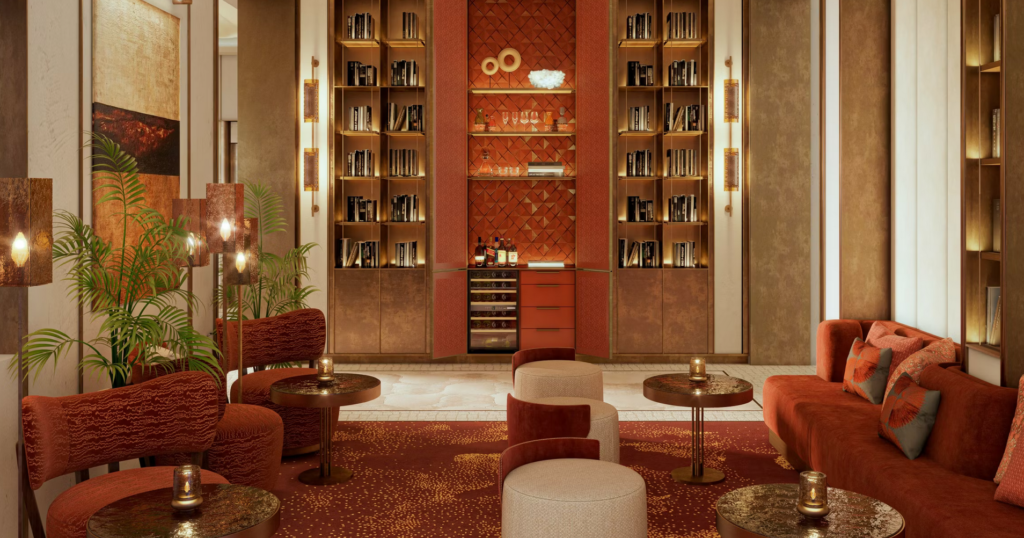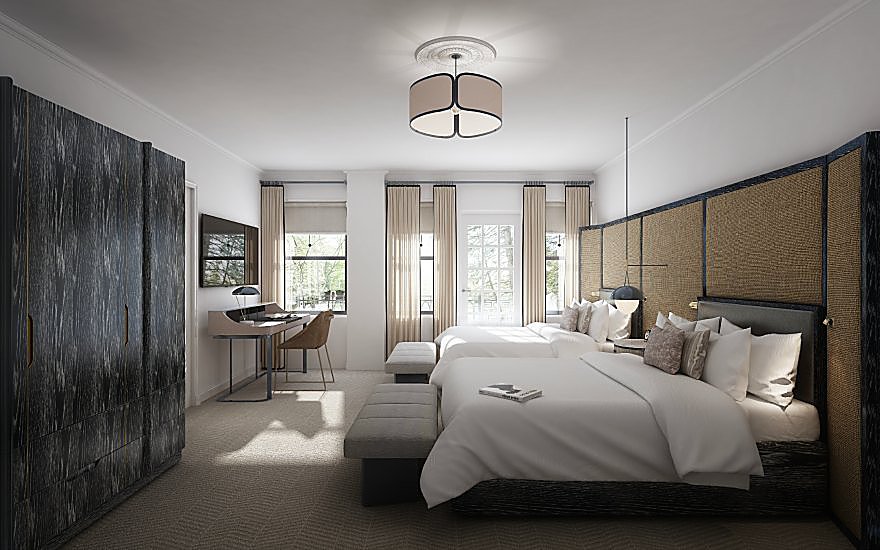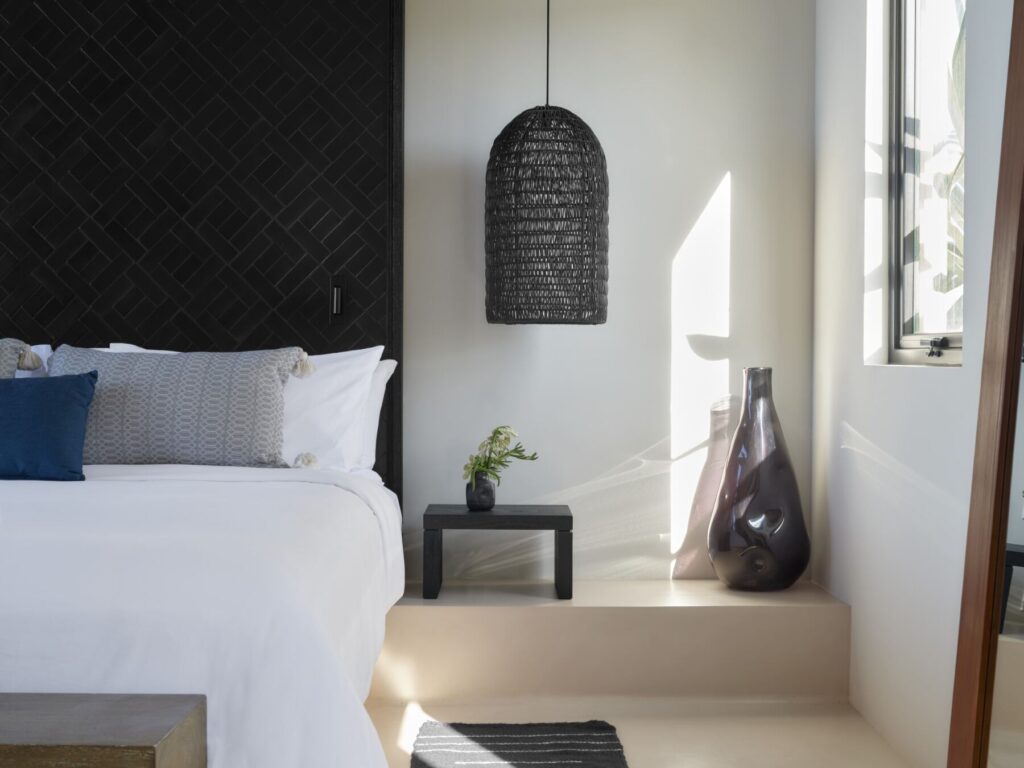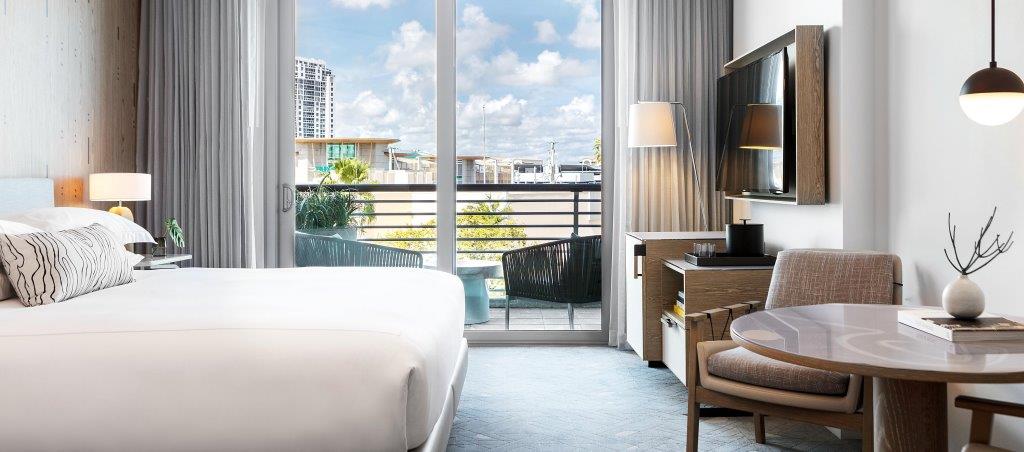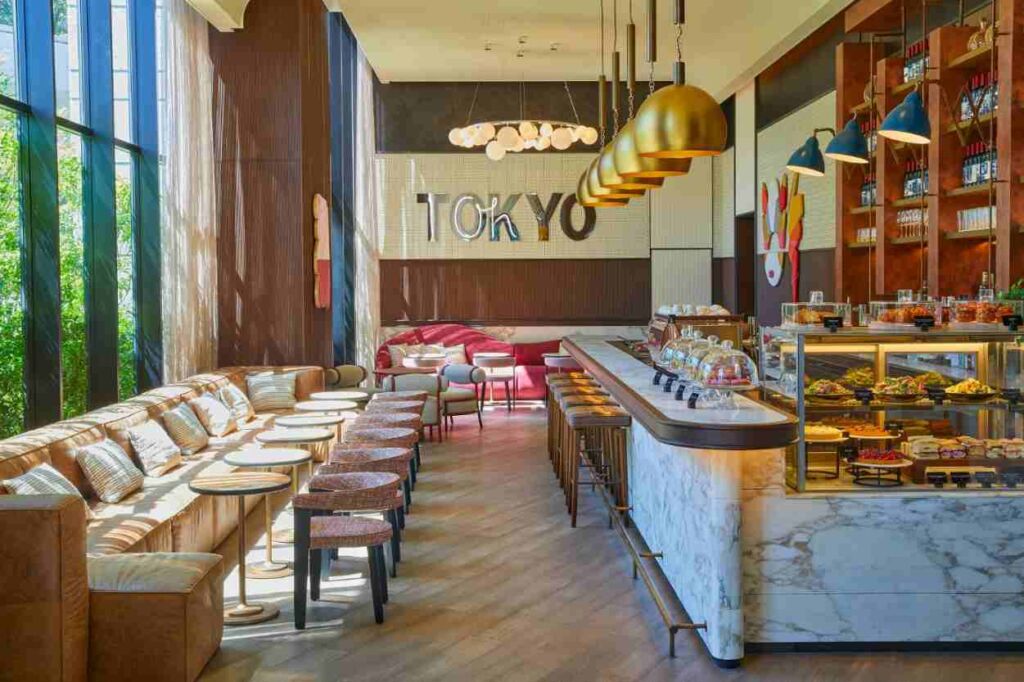Kimpton Hotels + Restaurants today released the results of a first-of-its-kind social experiment titled “Room 301,” originally launched in September 2018 at the Kimpton Everly Hotel in Los Angeles. Over the course of three months, more than 50 guests stayed in the room and participated in a series of interactive activities as part of the experiment.
Room 301 was born as a reflection of Kimpton’s belief that heartfelt human connections make people’s lives better and that commonalities and connections exist between all people—no matter their background or life story. Through the outputs of the experiment’s activities, Kimpton found that people are craving deeper human connections at a time where we’re more digitally connected than ever. The experiment showed that wildly different people often have much more in common than initially perceived—from their greatest fears, to pivotal life experiences, to the innate desire for community and belonging. Room 301 also revealed the immense emotional complexity of its guests and concluded that this broad array of experiences is what makes us all uniquely human and connects us to one another.
Based on the success of Room 301, Kimpton has decided to launch the Kimpton Stay Human Project—a new series of highly localized rooms across the country that will each bring the concept of Stay Human to life. The project transforms one premium room in 20-plus participating properties into a unique activation that honors the hyper-local character of the surrounding neighborhood. From a room dedicated to inspiring female empowerment in Washington DC to songwriting rooms for the musically-inclined in Austin and Nashville, to a creative space designed to “leave your ink” in New York, every room differs in theme and approach. Every Stay Human Project room is designed to provide a customized, human-centric experience and deepen guest connections.
“Room 301 was a special opportunity for us to provide a truly immersive experience for our guests,” says Kathleen Reidenbach, Chief Commercial Officer at Kimpton Hotels & Restaurants. “This room showcased how people are craving authentic connections and needing an invitation to pause and reflect in an often hectic and digital world. We’re thrilled to be able to bring more of these immersive experiences to our guests this year.”
Guests who stayed in Room 301 engaged with in-room elements designed to spark creativity, encourage self-reflection and explore what makes people human. From writing confessions on the hotel room’s walls to creating deeply personal video diaries, guests left their mark in the room to unburden or express themselves and to ultimately connect on a more meaningful level with others. Room 301 celebrated the diversity and connections between Kimpton guests, and revealed the following surprising results:
2018 was the year of self-care.
Kimpton presented each Room 301 guest with 10,000 IHG Rewards Club Points and gave them a choice—keep the gift for themselves, or “pay it forward” to someone else.
A full seventy percent of guests chose to keep the points for themselves. Some included notes expressing guilt for keeping the points or personal situations that necessitated they keep them.
One-third of participants selected “lust” as their top vice.
This activity asked guests to choose from a list of the classic “seven deadly vices” that felt most relatable to them. In return, the bartenders at the hotel bar provided a mystery cocktail that aligned with the guest’s vice of choice.
Thirty-three percent of guests chose Lust as their top vice. Envy came in second (21%), followed by Pride (17%) and Wrath (13%). Greed, Gluttony and Sloth came in last (8%, 4% and 4%, respectively).
Secret confessions are most often about personal relationships.
Kimpton invited guests to write their deepest, darkest secrets on the hotel wall completely anonymously.
Most of the secrets involved relationships, with 13 percent expressing their love for someone, confessing infidelity or sharing a light-hearted relationship secret (i.e. a candy stash hidden from a husband).
12 percent of respondents shared their innermost feelings, including confessions around personal shortcomings with commitments to do better.
2019 might finally see the decline of the selfie.
Kimpton asked Room 301 guests to take photos with an instant camera to represent their moods and write the corresponding mood on the photo.
Most surprisingly, the majority of guests chose to take a photo of another person or people (42%), and just 24 percent of guests took a selfie. An equal number of guests took photos of objects as they did selfies, followed by 10 percent choosing to represent their feelings through landscapes and scenery. And those common moods? A vacation in sunny LA made a lot of guests feel silly/playful (10%) and happy/joyful (13.5%). Getting away from regular life also proved therapeutic, with many guests reporting feeling hopeful/inspired, loving/loved, gratitude and peace (34%).
Strangers want you to call your parents.
Room 301 contained several activities that allowed guests to leave a message for the next guest in the room.
People chose to say all sorts of things to a perfect stranger, including positive, encouraging or inspirational phrases (26%), words of wisdom (32%), and fun, playful sayings (39%). Other themes that emerged included leadership, dreaming, taking risks and living in the moment.
Kimpton also asked Room 301 guests to share what they think makes people uniquely human. Responses ranged from the ability to make choices, free will, the capacity for compassion, sensitivity and feelings, but ultimately boiled down to one common thread—the complexity of our emotions and the duality of human experience. Overwhelmingly, the guest outputs of Room 301 have shown that what makes people special and connected is that no individual is just one thing or one emotion at any given time – humans are all multifaceted, complex individuals whose experiences intersect and diverge time and time again.
“I think humans are so complex, and that’s what differentiates us from any type of machinery or computer, or anything else that tries to mimic human behavior. We’re so complex, deeper than what we can read as emotions on the surface level, and deeper than our actions and how they are perceived by other people. Behind an emotion is always something deeper that maybe we ourselves haven’t unlocked—that’s what really makes us human.”—Room 301 Guest


